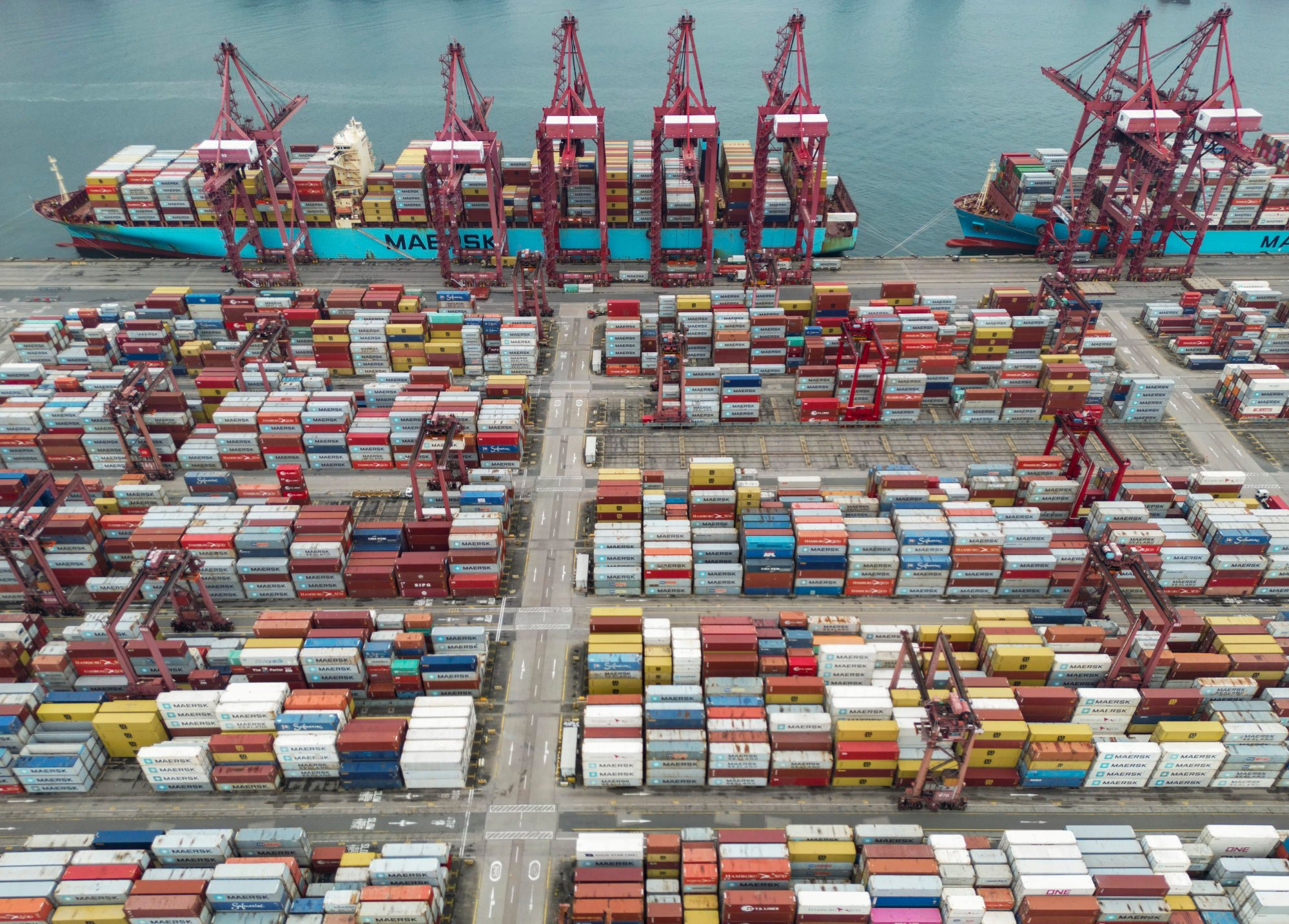[ad_1]
Hong Kong plans to set up a logistics data platform that will connect key transport hubs such as the city’s airport and commercial docks to enable a better flow of information, with a minister saying “all essential data” will ultimately be shared on a daily basis with stakeholders across the border.
But a concern group on Monday pointed to the lack of readily available land for the development of the city’s logistics industry and predicted dozens of firms would close down in Hong Kong and shift their business to mainland China.
The Transport and Logistics Bureau on Tuesday issued a blueprint on logistics development, which said the city needed efficient and cost-effective transport, as well as sustainable cross-border e-commerce.
The bureau said the government would develop and connect different logistics data platforms in the city and regionally to boost competitiveness and “make good use of big data to enhance the efficiency and transparency of the supply chain and reduce logistics costs”. The networks included the airport’s cargo data platform and port community system.

The platform will be subject to a study in 2024 led by the bureau designed to position the city as a global trade and financial hub.
Analysts have questioned whether the platform would make Hong Kong more competitive, on the back of the rapid development of logistics capabilities across the border.
But Secretary for Transport and Logistics Lam Sai-hung dismissed concerns that greater interconnection would undermine the city’s competitiveness.
He said it was in Hong Kong’s best interests to facilitate logistics data sharing with other bay area cities.
“Because of the integration of the logistics business for the GBA, we need to extend our system across the border so that all the necessary information could be transmitted to the GBA,” he said. “That will facilitate the growth of the entire logistics industry.
“And I don’t think that we will lose our edge. Of course, all the essential information will be passed to the GBA stakeholders. We would set up a system to ensure that all the essential information could be transmitted to all the stakeholders on a daily basis.”
Hong Kong moves up list of busiest airports, but still behind Changi, Incheon
Hong Kong moves up list of busiest airports, but still behind Changi, Incheon
As part of the eight strategies listed in the blueprint, the government plans to dispose of four parcels of land covering about 19 hectares (47 acres) from 2024 to 2027 around the Kwai Tsing Container Terminals for the industry to develop multistorey logistics centres.
The government has also reserved 37 hectares of land for modern logistics development in the Northern Metropolis mega project near the border in the long run, including in Hung Shui Kiu.
Lam added the government would identify suitable sites in other districts in the New Territories for logistics development.
But Stanley Chiang Chi-wai, chairman of the Hong Kong Land Transport Council, said the planned provision of land could not resolve the land shortage the industry faced.
“Distant water will not quench a fire nearby,” he said. “Over the next few years, the government will be taking back a large number of brownfield sites, but it does not provide us with a relocation arrangement.
“Several dozens of logistics firms will have no other option but to shut down their business, resulting in all their business going into the hands of other GBA cities.”
Foreign businesses in Hong Kong welcome multi-entry visa for mainland China
Foreign businesses in Hong Kong welcome multi-entry visa for mainland China
Without available land to accommodate existing firms, their costs would rise and force them to relocate to the mainland and undermine the competitiveness of Hong Kong, Chiang warned.
“We welcome the eight strategies, but we need the immediate provision of sites to cope with the industry development now.”
The government was expected to take back another 200 hectares of brownfield sites by 2026 for development in the New Territories, on top of the existing 30 hectares it has already resumed ownership of, affecting 400 operators.
Brownfield operators who face land being taken back said they were concerned about their future, as the government had said that it would only offer financial compensation, but not the option of relocation.
Gary Lau Ho-yin, the chairman of the Hong Kong Association of Freight Forwarding and Logistics, said the eight strategies would enhance the city’s edge with a more efficient customs clearance and management of the transport of goods.
“But the data sharing with GBA will push the operation cost higher resulting in more jobs shifting to the north which will further aggravate the manpower crunch in Hong Kong,” he said. “This is the challenge that the city needs to tackle.”
[ad_2]
Source link
